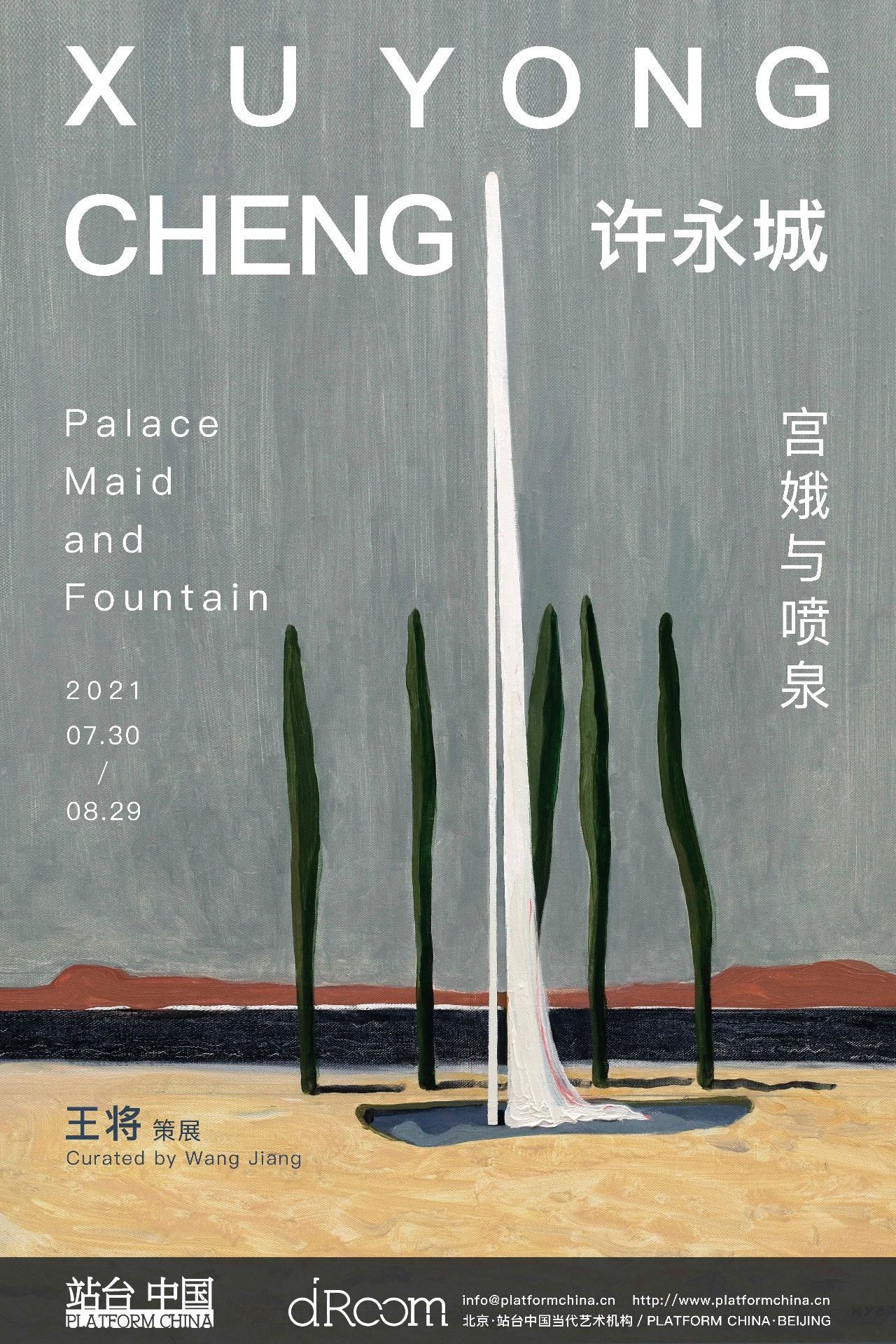
XU YONGCHENG
PALACE MAID AND FOUNTAIN
Curated by Wang Jiang
Opening | 2021.07.30 3:00pm
Platform China - dRoom Space will present the solo exhibition of artist Xu Yongcheng: Palace Maid and Fountain from July 30, 2021, to August 29, 2021. Curated by Wang Jiang, the exhibition will put on display over 20 oil paintings of the artist.
Palace Maid and Fountain are two images extracted from the works of Xu Yongcheng. The Maids of Honor, a famous painting of Velazquez, appeared in the deep of gloomy interior space in an old work of Xu Yongcheng. The “traverse” made The Maids of Honor with specific cultural information mixed with the unnamed environment and produced a sense of strangeness. Yet, the hazy picture endowed certain mystery to the scene. Moreover, the fountain became a theme under constant experiment in his works created recently. The fountain is not just an ancient water supply facility, but also the “architecture of power” with the symbolic meaning changed as time goes by, thus attracting the attention of XuYongcheng. The relations of people, space-time and fountain became the initial topic of the series as he tried to express the public value of fountain via specific situations. But in his recent works, Xu Yongcheng adopted an opposite strategy to suspend the absolute meaning by dispelling the environment of the fountain. In these paintings, the fountain has nothing to do with the center or margin on the regional space, nor is it related to the past, today and future. As a super sign, it has open symbolism in the chaotic space-time. Themed by Palace Maid and Fountain, the exhibition is the speculation of the private or public attribute of the two things and involves the class segment of art while implying the update of artistic concept and cultural landscape amid the change of time. For that matter, the painter proposed a referential insight: Both “Palace Maid” and “Fountain” are the outcome of meaning evolution. Therefore, we can only recognize and compare them in definitive space-time.
The expression of time and space has long been an important direction of the painting practice of the artist. His works often demonstrate the duality of space-time experience, i.e., depth and plane, moment and eternity. This peculiarity is extremely evident in the old works which manifest indoor landscape with brown tonality: Color vibrates slightly in the deep and quiet space where images have misty outlines. When throwing sights upon the depth along the perspectivity, the spectators seemingly can feel the flowing air in the space. Yet, the details are hidden in the illusory fog, revealing that everywhere you look is out of reach. These scenes shared the contemplation of the painter with the spectators, but the aliened forms, mixed color layers and loose brushwork produced the alienation sense of watching. This is a constant hint, showing that it is demonstrating—the immediate scene is a painting—it constantly attracts the attention of the audience to the surface of the painting. Forms, colors and brushwork enable us to sink in the placid and leisure form and rhythm. In this metaphysical world, we meet the thing-in-itself of painting. On the other hand, the silent atmosphere, hazy shadow and stable composition shape the moment to eternity. We can appreciate both through the scenes: Moment is a reasonable awareness, while eternity is a perceptual experience. Eternity manifests the idea that the mind should linger nowhere. It stays with any moment; yet, it does not cease at any moment; it is shown in birth and death, is ever-changing and continuous. Therefore, the moment is definitely an eternity. The paintings of Xu Yongcheng result from his contemplation and mediation of daily scenes. Based on this, he captures moment, depicts eternity, and displays his life experience.
The artistic experience of Xu Yongcheng is a typical case amid the local situations. His path from the Guangzhou Academy of Fine Arts, to the Repin Academy of Fine Arts and then to the Chinese National Academy of Arts once implied some value belief about Chinese oil painting. But for now, it is on the decline against the background of globalization. We cannot avoid that culture is not an isolated entity, and globalization endows it with strong liquid nature. We share the popular aesthetics of the 21st century, and also share the past and the future. For XU Yongcheng, the previous belief was only the lingering sound of history which does not affect his independent reflection. However, he must constantly develop the aesthetic experience which has already been internalized, and accumulate sufficient individual energy; only in doing so, can he achieve more in the contemporary art field full of power struggle.
Back to the theme of “Palace Maid and Fountain”, we should reflect carefully: What should we pursue amid the enclosure and limitation of space-time and the constant change of power?